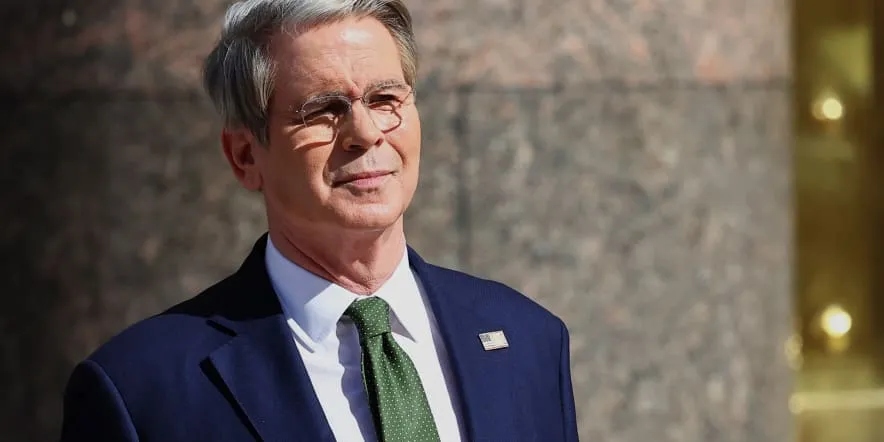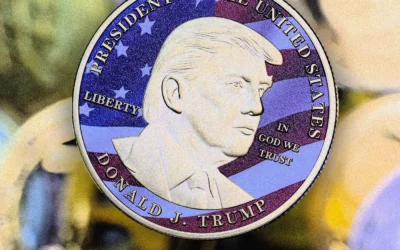Treasury Secretary Scott Bessent’s Vision for Financial Stability
In a world still reeling from the upheaval of the COVID-19 pandemic and ongoing geopolitical tensions, Treasury Secretary Scott Bessent has taken center stage to outline a strategic plan aimed at restoring balance to the global financial system. In a keynote address delivered at the Institute of International Finance (IIF) conference, Bessent highlighted vital elements of his vision, while also critiquing the roles of established institutions like the International Monetary Fund (IMF) and the World Bank.
A Call for Equilibrium
Bessent’s address comes at a critical juncture when economies around the globe are attempting to stabilize after years of uncertainty. In his remarks, Bessent emphasized the need for ‘equilibrium,’ asserting that the current financial landscape cannot support the levels of volatility and inequities that have emerged over recent years.
“The financial system is at a tipping point, and without concerted efforts from all stakeholders, we risk plunging into further chaos,” Bessent stated. His call for equilibrium encompasses not only economic stability but also social justice, urging a shift in focus from traditional profit-driven motives to more equitable approaches that consider long-term consequences.
Critique of Traditional Institutions
One of the most striking parts of Bessent’s speech was his pointed criticism of the IMF and World Bank, institutions closely associated with global financial stability for decades. Bessent accused these organizations of experiencing ‘mission creep,’ which he described as a shift away from their original purpose of providing emergency assistance and supporting development. Instead, he argued, they have veered into areas of regulation and oversight that might be better handled by national governments.
“When institutions lose sight of their core missions, they can inadvertently contribute to instability rather than alleviate it,” Bessent said. He suggested that the IMF and World Bank should refocus their energies on their foundational goals: poverty alleviation and economic support for developing nations. By doing so, they could play a more constructive role in achieving global financial equilibrium.
Financial Innovation and Inclusivity
An essential part of Bessent’s vision revolves around embracing financial innovation to foster inclusivity. He urged both public and private sectors to invest in technologies that can democratize access to financial services.
“The digital age presents us with unprecedented opportunities to include the unbanked and underbanked populations worldwide. By harnessing technology, we can create new pathways for these communities to participate in the global economy,” he explained. Bessent advocates for policies that support innovation while ensuring consumer protection and guiding the use of new technologies responsibly.
Global Collaborations and Multilateral Cooperation
As the conversation around equilibrium evolved, Bessent emphasized the importance of global collaborations. He proposed that restoring stability would require strategic partnerships not only among financial institutions but also with NGOs, civil society, and local communities.
“Financial resilience cannot be achieved in isolation. It demands a collective effort that foregrounds the voices and needs of diverse populations,” he remarked. He went on to voice support for multilateral agreements that prioritize sustainable development goals, arguing that an inclusive and participatory approach could result in strengthened frameworks for economic stability.
Regulatory Reforms and Consumer Protection
In his keynote, Bessent highlighted the pressing need for regulatory reforms that adapt to the changing financial landscape. He underscored that while innovation is critical for progress, unchecked advancements can lead to financial risks.
“Our regulatory environment must evolve to protect consumers while allowing for innovation to thrive. A balanced regulatory framework will ensure that financial products serve the consumers’ best interests and mitigate risks inherent to the rapidly changing market,” Bessent stated.
The Importance of Education and Financial Literacy
Education emerged as a pivotal theme in Bessent’s address. He advocated for nations to invest in financial literacy programs, asserting that an informed populace is essential for a stable financial environment.
“Empowering people with financial knowledge equips them to make informed decisions, thereby promoting sustainability and resilience within the economy,” he continued. Bessent urged governments and institutions to integrate financial literacy into educational curricula, ensuring that future generations possess the skills needed to navigate complex financial landscapes.
Conclusion
As Secretary Bessent concluded his address, he reaffirmed his commitment to restore equilibrium to the global financial system. Through a strong emphasis on inclusivity, technology, collaboration, regulatory reforms, and education, he laid out a roadmap for stability and sustainable growth.
In the upcoming weeks, the Treasury Department will work closely with various stakeholders to further refine and implement strategies stemming from Bessent’s vision. As the world watches, the effectiveness of these initiatives will be crucial in determining the future trajectory of global financial stability.
For those interested in the developments surrounding this initiative, a recording of the live address and subsequent discussions can be accessed on the IIF’s official website.







